Hatched as a plan to find something to do during the cold winter months when the Novio was away in Somalia, I decided to begin studying for the DELE. I didn’t need it for a job, nor a university program. Nay, this overachiever wanted to prove she knew enough Spanish to have a piece of paper proclaiming it.
Famous. Last. Words.
The Diploma de Español como Lengua Extranjera is an internationally recognized exam that probes the level of a non-native speaker who can operate using the language in the various skills of foreign language learning: writing, speaking, reading, listening. It’s comparable, depending on one of six levels of the Marco Común Europeo de Referencia, to the Cambridge and Trinity Exams of English. The exams are supervised by The Instituto Cervantes, a renowned study center from which you can request a free brochure.
Little Miss Smarty Pants thought she could do the C2 Superior Level. After doing some research on the exam’s sponsor, Instituto Cervantes, I marched down to FNAC to buy the prep books, El Cronómetro and the Edelsa C2. I ended up getting only the first, mesmerized by the stopwatch (hence the title) and nervous when I cracked open the book to see just black, white and maroon and no pictures, just tiny little stopwatches next to the words “pon el reloj.”
The May examination date rolled around, and between Holy Week, Feria, and visits from not one but four friends…well, I forgot to sign up. No pasa nada, I thought, I’ll just study during those rainy afternoons at camp and then that month I’m home doing nothing. I toted the book to La Coruña and then to Wheaton, but only cracked it on a long car ride to Kentucky to write out the slang words on cards to study.
My exam is in ten days. At some moments, I feel confident and like test ain’t got nothing on my Spanish-wielding tongue, until I remember that I also have to know how to write and interpret well in a language.
After finally hitting my stride (and saying adiós to my social life), here are some Do’s and Don’ts of studying for the DELE.
DO buy the right materials
After starting your initial search to find out more about the DELE on the Instituto Cervantes website, it should come as no surprise that there are books made especially for the exam, much like the standard GRE or LSAT books. To help get you started, you can ask for an informational guide from the Instituto Cervantes.
The book recommended by the FEDELE in Seville was the Cronómetro. I prefer this book because it not only has tons of practice session, but it also helps you find the testing method most suited for you. When doing the reading comprehension, is it easier for you to read first, then tackle the three questions, or is it better to read the questions first to know what you’re looking for? It also has a better description of what to expect from each section in the exam. I bought it at FNAC for around 24€, and the newest edition, all green and white and super bético, was the same price of of Amazon in Spain. Since the format of the C2 has changed this convocotoría, this book is better suited to help you prepare for the new exam.
I also used the Edesla C2, which was really like a series of mini-exams within a different theme (science and technology, arts and ethics, man and his surroundings). What’s more, the Libro de Claves was actually sold separately, so I had to make yet another trip to FNAC and spend an extra 3€. And I peeked because the questions were so incredibly vague. “En el texto se dice”: UM A LOT OF THINGS?!
My pick is definitely the Crom. So go ahead and Pon that Reloj.
DON’T assume you know your level: do the online exam
In Europe, there is a standardized model of foreign language comprehension, known as the Marco Común Europeo de Referencia (MCER) here in Spain. This is an umbrella term, as it refers to the basic competencies a language learning should have in his desired language. the DELE, for the most part, follow the MCER, so the six levels are standard, and you can see them here.
Before going out and buying your prep books, take the shortened version of the exam, available on the Instituto Cervantes Spanish page (click here). I took it once before studying hardcore and scored a C1.4, the highest level of C1, and again just last week and scored a C2.1, the lowest for that level. Additionally, the FEDELE offered to have me come in and take a few practice oral exams, though the woman told me I was a C2 and should consider taking the C2 written, as well.
Looks like I made a good choice in the C1.
DO find a good place to study
My Cronómetro book looks like a tattered old journal – all marked up, the binding half-ripped. Sadly, I have carted the 300-paged monstrosity around to too many places – Córdoba, America, Madrid – and barely even given it a second thought. Every time I think I can study somewhere, I find it’s impossible because of background noise or distractions.
Case in point:
Sure, it was nice sitting outside on a balmy May morning, but the quarterly chimes on the nearby Mezquita made me nervous and more time-conscious than usual. And trying to study on the AVE high-speed train? Please.
I would study as close to the conditions as possible – sitting upright, having a pencil and sharpener handy, plenty of light, and no distractions (even turn your móvil down if you have to! Mine beeps constantly, so I put it in a different room). I often waited to do the listening portions until The Novio was out of the house and didn’t have the TV blaring.
DON’T try and study outdoors, during holidays or when friends are in town.
Did I care cramming one weekend when I had nothing better to do? Of course, but I don’t regret not taking the exam before when I had friends visiting and I wanted to travel to Romania and when the rebujito and Monica’s arte took over at the Real. Be realistic – if you can’t put in the time needed to adequately prepare, don’t pay to do the exam.
DO consider taking a course or having private instruction
Doing simple google search for “cursos DELE” nets hundreds of places to get exam prep, both online and in person. Most are costly (around 300€), but come with the practice book and pautas and tips to doing the exam. I knew I could study for the majority of the test on my own, but considered hiring a Spanish teacher to help me with the writing and speaking part of the exam. In the end, our schedules weren’t compatible, but Eva seemed like a great resource.
The first place to look is the Instituto Cervantes itself in your city, and finally at the various language centers in your city, like CLIC or even universities with international programs. Keep in mind cost, whether or not it’s intensive or not, the success rate of students and if you think it will help you in the long run or not.
I personally thought the people at CLIC in Seville and Cádiz were more than happy to help me prepare by offering free consultations, following up with emails and in turn being an examination center. In addition, the Instituto Cervantes also offers online consultations, practice exams and prep courses.
DON’T freak out about knowing all of those stupid refranes.
Guess what! They’re no longer on the exam! Collective sigh of relief, verdad? Before, the there were up to 12 points to be earned simply by reading a statement with a refrán, or a type of common saying, and choosing one of three options.
For example: Me han dejado asistir de oyente, pero no puedo meter baza en ningún momento.
Well, you say, meter means plenty of things, and Baza is a small town in Granada, and the sentence says you were able to go to a lecture and listen, but surely it had nothing to do with that little village. So, you look at the three choices. A intervenir, B interrumpir, C cooperar. Hmm, no help. I chose B, but it’s actually A. There were eight of those in a 60 minute test that also included text completion and error detection.
Instead, I would focus more on knowing prepositions, por v. para, ser v. estar and the subjunctive tenses more to help you on the writing and speaking sections of the exam. No los estudies, ni a tiros!!
DO practice writing prompts like crazy – even the ones you’d never choose on the actual exam.
I tried to skip them, but I couldn’t. The writing section is a large part of the DELE, consisting of two parts: in the first, you’ll be asked to pick one of two options regarding a formal letter or email. This may be a complaint, a letter to the mayor, an email requesting information, a reclamation of a service…and the list goes on. It’s important to know formal salutions, advanced vocabulary and to include all of the parts asked for in the prompt.
The second part is more personal, and you’ll have to choose between three different prompts. These could be about personal opinions, experiences or anecdotes. The language employed here is much more narrative and you’ll often be asked to describe how you felt when X took place. And it doesn’t hurt to make it related to Latin culture, either.
Keep in mind you’ll have to beat the clock: you have 60 minutes for brainstorming, drafting and re-writing your two pieces of 150-200 words in pen. Practice with your clock ALWAYS, on all of the parts of the exam, but be much more wary during this section. Your pieces should also be clear and use the language you know – it’s advised to make the letter more simple if and always when it’s clearer.
DON’T cram. Make a doable schedule, and stick to it.
My biggest mistake. I would come home so wiped from school, that I often put off studying. Then I had work to do. Then it was someone’s birthday. And, in the spirit of Dude, Where’s My Car, and then and then and then and then…! En fin, I wasted a lot of days where I could have been working through problems and writing prompts and instead had to cram last weekend and barely consume any beer. These last few weeks, I’m doing my best to do one or two practice sessions a night to be able to stay on top of my game but still not stress out.
I learned time management skills when I was like in third grade…what happened to them?
DO practice outside of the book – listening to political debates, brushing up on medical vocabulary, reading hilarious books like El Tesís de Nancy
I realize I live in Spain and have ample opportunities to speak and listen to Spanish, but I have been utilizing all kinds of tools to amplify my vocabulary – even my smart phone! I downloaded an app called Prensa de España, which has newspapers from around Spain in mobile format, found a great English-Spanish dictionary and have been listening to podcasts. The world is my oyster when it comes to finding even MORE ways to sneak a little castellano into my life (as if a Spanish novio and Spanish workplace and, um, living there weren’t enough!).
On the writing and speaking sections, and general knowledge of Hispanic culture is 100% important, as is being able to listen to different accents. The exam may call for you to read a quote and take a stance on it, talk about the economic crisis, or write about that time you schlepped through the Prado Museum. Knowing some basic vocabulary will actually make you sound like you know what you’re talking about, and so will using the “he” form of haber.
And read El Tesís de Nancy. It’s about an American girl who lives in Seville during the 70s and dates a gypsy. It’s hilarious, and her errors in the letters she writes to her cousin Nancy have helped me to be a more critical reader of my own writing in Spanish.
Now that you’ve decided to prepare the exam and you’re willing to shell out 175€ for the upper level exams, how does one go about signing up? Read about my experience taking the DELE here.
Have you ever tried speaking Spanish? What types and tricks have you got to share?


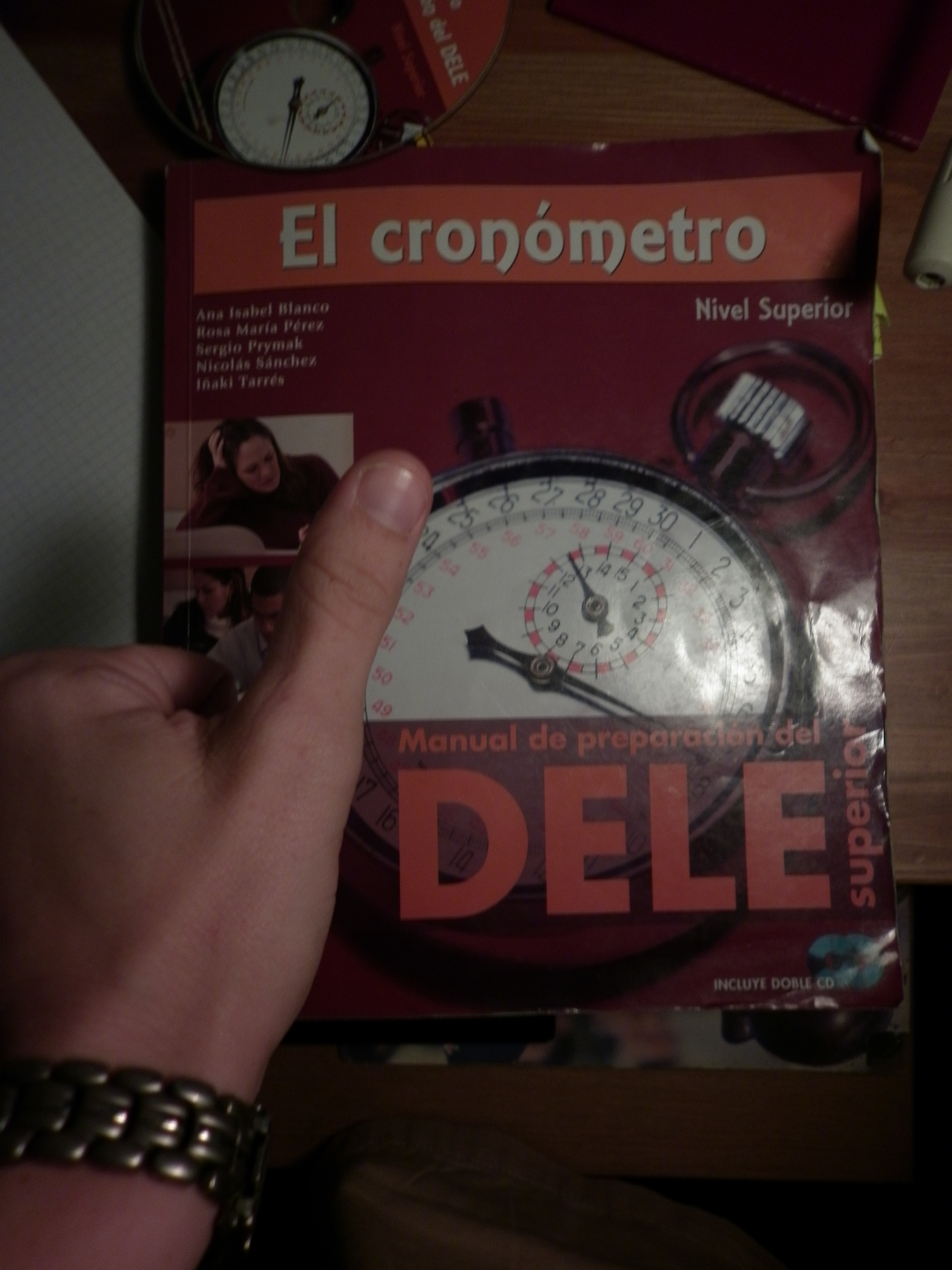
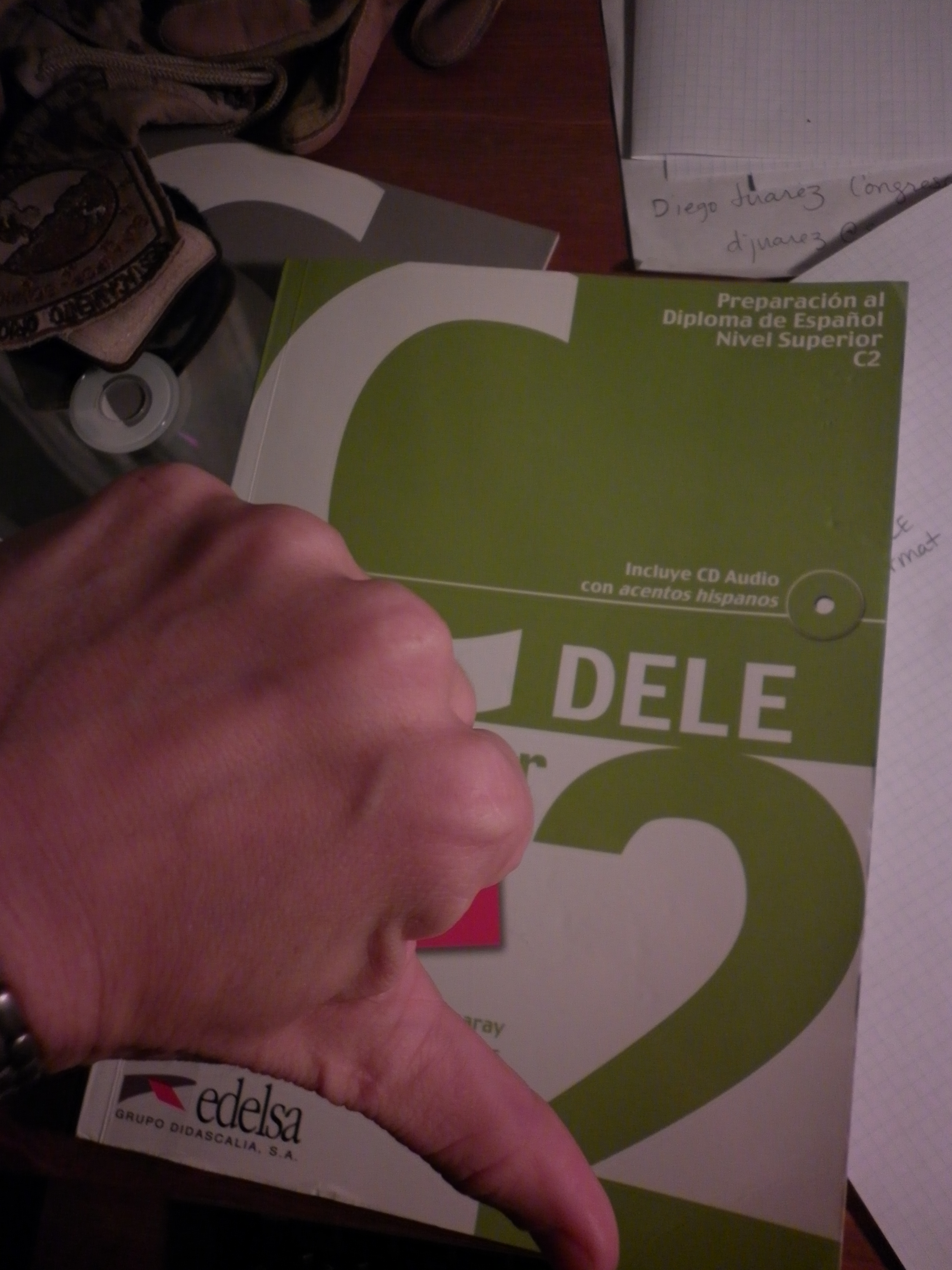
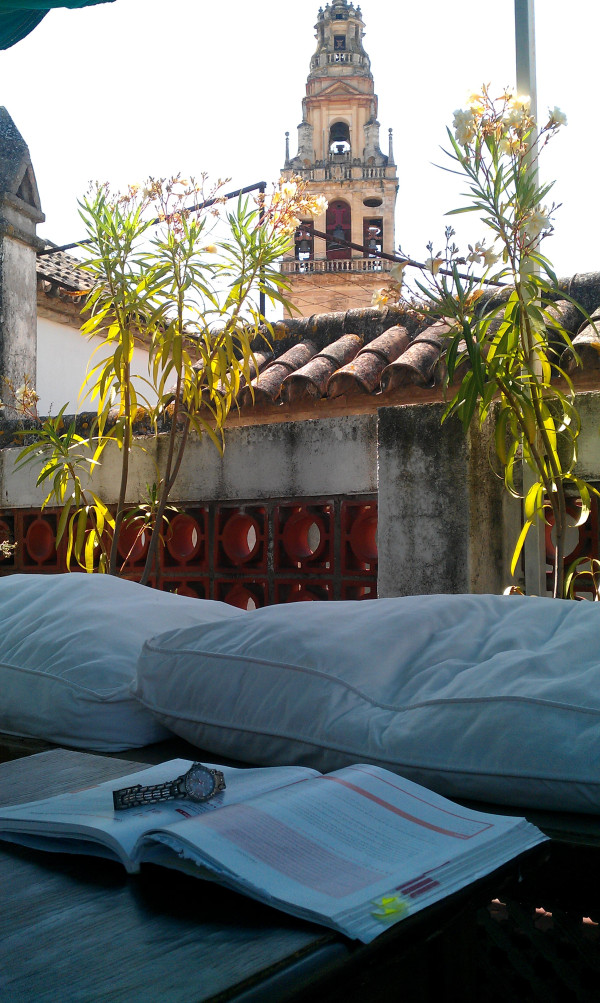
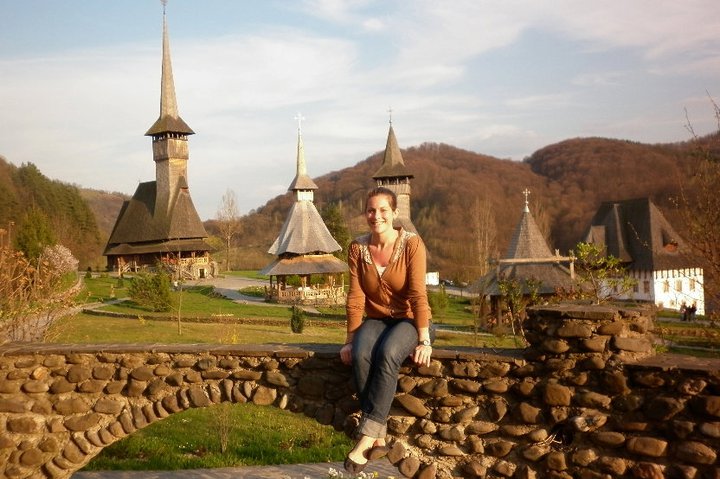



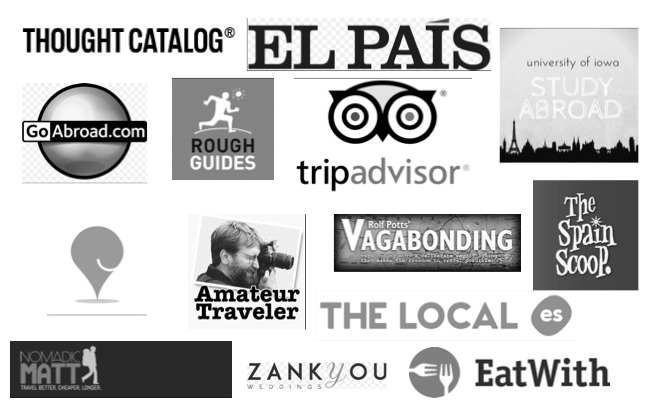


My school gave me La Tesis de Nancy as a going away present. I read it while touring Europe and loved it! Glad I’m not the only one
Good luck bonita!!!
I´d like to do the same with the Cambridge exams!
Good luck, chica!!! Thanks for the tips, I need to start studying so I can take it one of these days!
Thanks for writing this! I about to embark on a C2 journey of my own and feeling pumped but overwhelmed , so this was super helpful
Glad it helped! I’m still awaiting results, so don’t expect to know shortly after the exam – I took it nearly 12 weeks ago already!
Thank you for this blog entry! It’s really helpful.
Question: After taking the exam, would you still say that Cronómetro prepared you better than Edesla C2?
Hi there! YES, The Cronómetro was better at providing pautas, whereas the Edesla book gave a bunch of vocab and practice exams. Since the C1 test has changed since that book was published, I ofund that having @destrezas integradas@ or tests that probed a bit more than just reading comprehension, were better. Which level are you planning to take?
Hi, thank you for your reply!
I’m shooting for C2. I read somewhere that I should only buy the guides that were made after April 2011, because the exam is different now. What worries me the most is the speaking part, but I got 6 more months till the May exam, and I do live in Nueva York, so finding native speakers should be a piece of cake…
I am happy to have stumbled across your articles on the DELE exam. I am supposed to take the C1 test in one month for a job opportunity, but my confidence is dwindling by the day — especially once I read that you passed the oral exam by only 2 points despite thinking it was relatively easy! I have heard that this test is quite difficult (especially the oral sections), and I am starting to feel the pressure! Anyway, nice job posting some useful information for everyone to see.
JR, I’d advise practicing as much as possible! My problem was that the exams were updated before he books, so I really didn’t know what to expect. Try searching YouTube to see if there’s anything that shows the exam format. Check out my other posts, too, and suerte!!
Hola! He posteado tu página en la mía. Échale un vistazo a la mía, yoablo.com o https://www.facebook.com/yyoablo y dale un “Me gusta” (si te gusta). Gracias!
I am one of the authors of El Cronómetro A2 and C1, by the way.
Carlos recently posted..¿Vamos a la playa?
Hi Thank you very much for the delicious information:) Im so glad to have encountered this site. I am aimimg for B1 in the end of this november. Could you please recommend me a listening material with transcript ( and ideally with english translation) ? I commute 70 minutes and would like to utilize that time. Thank you in advance for your cooperation..!
Hi Miyana, The exam has changed since I bought my books, but I’d imagine that listening to a Spanish talk radio station and watching TV would help tremendously. I don’t know what’s currently on the market for listenings with transcripts nor what the format for the B2 is, but the section isn’t very long. Suerte!
Hey! i really enjoyed your article! I would like to take the C1 exam also so it was really helpful. Did you prepare your grammar from a special C1 level book? thank you! keep up the good work! PS nice pictures you have from Romania
Hi Cristina! Thanks for the comment. I did a lot of grammar work through the Ultimate Spanish Grammar Review book, which also has a section on idioms, but what helped me the most was doing a lot of speaking and listening. This way, I could eliminate options that sounded wrong! Mucha suerte!!
“I didn’t need it for a job, nor a university program. Nay, this overachiever wanted to prove she knew enough Spanish to have a piece of paper proclaiming it.”
That’s quite a mischievous claim haha. You might not know its use for now, but points are gonna connect in your life. Who knows what holds for the future. As DELE is a life-long certification, it definitely adds value to your life. Good for you.
What’s funny, Jimmy, is that I didn’t think I needed the DELE in 2011, but it’s gotten me out of language requirements for a master’s and I think it has opened up my job prospects! Mucha suerte!
I’m also preparing DELE C1, in Chile. Good article, especially on the distinction between Cronometro and Edelsa. Thanks.
I’ve tutored a number of determined students who had mad grammar and vocabulary skills, but for whatever reason could not seem to acquire a decent accent. I’ve found that having them imitate native Spanish speakers speaking English with thick accents works wonders. It forces the student to focus on the sound of the words, rather than their content – it isolates the phonetic from the semantic. Once previously unused muscles get into shape (a minimum of many weeks) the accent comes rather easily. Soon, the student is distinguishing between and even imitating the accents of a wide variety of speakers – in Spanish.
Ken, I’ve never heard that advice before! I use the phonetic alphabet a lot in my classes and drill pronunciation, but I should use it!
Hola: Interesting articles. Would you please add up the links for the books and etc so we can follow Muchas gracias
Muchas gracias
I took the C1 yesterday and I am so pumped that it’s over! Celebrating by doing absolutely nothing today. Anyways just wanted to thank you for your posts because they helped me a ton and for answering my questions as they arose the past few months. I also don’t need the certificate for anything (yet) which led me to wondering whyyyy I was choosing to torture myself and Inever want to see my Cronómetro book again
Thanks, lady! Seguro que the salió bien!
Hiya … how was your C1 exam? Did you find it easier than you thought it would be? Any post-exam reflections?
Hola Richard, the hardest part was the speaking. It required really difficult language, so I’d highly suggest reading he paper if you’re considering the exam. Here’s the follow-up post: http://sunshineandsiestas.com/2011/12/07/dele-if-you-do-dele-if-you-dont/ Suerte!!
Thanks so much for this article, very helpful!
I have been thinking of taking the DELE exam for about a year now and I am finally getting down to business and am planning to take the exam this coming spring. I took a practice test quickly and scored a B2.3-4, so I’m thinking with enough preparation and studying I should be able to pass the C1 exam in June or July (5-6 months from now). Would you agree with this? You said that you received a C1.4 on your practice exam and then you chose to take the C2 exam, correct?
I am also trying to decide whether I should hire a private tutor or attend classes in an institute and wonder if you can give me any further thoughts on these two options?
Thanks!
Hi Rebecca! The DELE exam is definitely a great paper to have, particularly if you live in Spain and need to prove language skills. In the end, I couldn’t dedicate as much time to the process because of a promotion, so I chose to take the C1. I passed the reading and writing with few mistakes, but the speaking was tough! I think you can definitely take the C1 if you get a good book (I recommend Cronometro) and take the time to study, plus have a friend read your practice essays.
Since the exam is about more than grammar, make the effort to listen to podcasts or the news, read current events and be able to talk about them. I don’t think a tutor is necessary if you do! Suerte!
Hi there, I was wondering which podcasts you would recommend. I’ve tried searching the most downloaded podcasts in Spain, but haven’t found any I’ve liked so far. Thanks!
Hola.. nos hablamos hace unos meses por email. vivo en india. He acabo de excribir B1.. me gustaria tu resultado
Olé! Seguro que ha salido bien!
You know you can also turn off your mobile phone completely?
I took the exam right when smartphones were becoming a thing, so we had to simply surrender them! Thanks for the update!
Does any body know how the scores are calculated. I did some past papers and wondered how I did
I saw a figure of 30% memtioned which seems very low.
Hi there, my apologies for having to retrieve your comment from spam so late. The scores, as far as I can tell, are weighted evenly, with reading and writing being grouped together. You must get at least a 16/25 on each part to pass. Suerte!
I think Andreas was referring to you saying how you put your phone in another room when studying because it beeped, lol.
Ah I forgot to mention. I took the Cervantes page practice test back when I had an A2 level and it told me I had a C1.2. I couldn’t speak or write at this point, and I could barely read. I am just a bit of a grammar fan. So I think it isn’t a very trustworthy judge of one’s level. They ended up putting me into B1 when I applied to study in EOI, and it was really difficult for me at the beginning but by the end of the course it was easy because I studied very hard.
Just a warning for everyone not to choose which of the expensive exams to pay for based solely on that, because you might be like me.
Great advice! As a TEFL teacher, I find that a simple grammar test doesn’t tell me much about someone’s level because it doesn’t take all of the parts of language learning into account. Good luck with your studies!
Estoy agradecida a Ud. Los comentarios son muy útiles para cualquier persona. Aúnque no tengo confianza pero quiero presentarme el examen DELE B2.
Mil gracias.
Ádios
Seguro que tendrás suerte!!
Hi Cat,
I’m going to be taking the B2 level in two weeks :-O The writing part makes me the most nervous. Do they stress upon putting information like your address or the subject of the e-mail? I’m worried about that kind of information counting towards my word count…I always seem to have too much to say!
Hi Katey, thanks for reaching out to me. I honestly don’t remember even writing a letter – I took the test five years ago! I’m sure you’ll do fantastically regardless. Suerte!
I want to give dele A2. I have been taking classes since 2 months and the exam is after 2 months. Is it enough to prepare for A2?
Hi PC, this depends entirely on how much you study and how you study. With dedication, será fácil!
Well, hello there. First of all, I reallz wanted to tell you how much your extensive description of the preparation process for the DELE exam has helped me so far with regards to materials, choosing the right level of exam and preparation methodology in general. So, thanks a lot
– Also, I wanted to ask for some help. I just finished the first test of the C1 book (actually planning to try out the C2 exam in Lima, Peru may 20th btw) about reading comprehension, scoring 27 correct answers out of the 40 questions. I can’t seem to find information about where that leaves me in the book though??
– thanks so much again and sorry for any grammar mistakes as English is not my native languag either
Hi Thomas, sorry for the late reply. I think you have to score at least 25, and then get 40 of 50 in the comprehension sections. An email to the Instituo Cervantes would clear up your questions best. Suerte!!
Hi thanks for the article! I took the practice test that you linked and got C1.3-C1.4 but then I looked at past exams online and they looked very different, and I’ve never felt like I was C level (especially for speaking.) Should I ignore the results and take the B1 or B2 like I was going to? I don’t have a teacher so I’m not sure how to know. All of the other online tests say C1 or C2 but they seem to all be mostly grammar and fill-in-the-blank.
Hi Melanie, thanks for your email and please excuse the late reply! I think you could certainly set yourself up for the challenge of the B2 and see if that level suits. The online tests unfortunately don’t take speaking into account!
Hey! There are only find 2 past exam papers on the Cervantes website. Do you know where I could find some more?
Hi Arshiya, short of buying a book, I don’t!
Hola Cat, I am planning to do the DELE C! next year. I am a bit panicked by the prospect of it all and i wonder if you had some more tips or advice for me with regards to preparation..
Kate
Gracias por tu articulo bastante util. (Yo tambien hice el programa de asistente cultural en Andalucia hace un tiempo …el mundo es un panuelo, no?)
Bueno, hace muchos anos que quiero tomar el examen DELE pero es que nunca se me ha presentado la oportunidad (por falta de tiempo, por localizacion, etc. y puede que suenen a excusas pero ya que enseno ingles como segunda lengua en un pais en el Medio Oriente me ha resultado dificil encontrar el momento y lugar para tomarlo.)
De todos modos, hice una busqueda en Amazon y los libros se han actualizados y ya no encuentro el de “Cronometro nivel superior”. Si he tomado el examen online del Instituto Cervantes y he conseguido un nivel de C1.4, que harias tu si fueras yo? … me compro el C1 y empiezo al tope maximo o me compro el C2 y empiezo desde abajo y voy subiendo? Te agradezco el consejo
I’m semi-cramming for the B2 right now, so thanks for your insights. The two study books couldn’t be more different – Cronómetro seems to be better but has no guidance at all on the letter/email writing part.